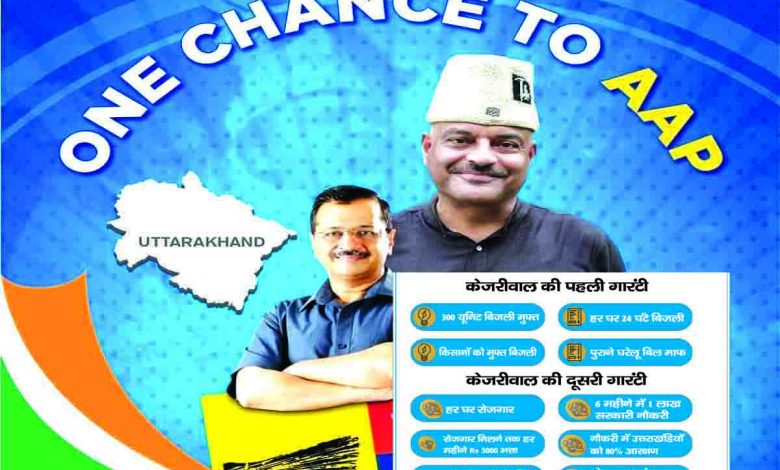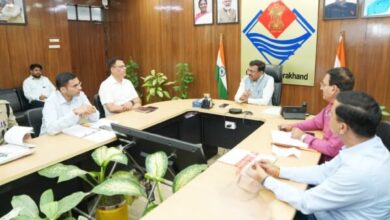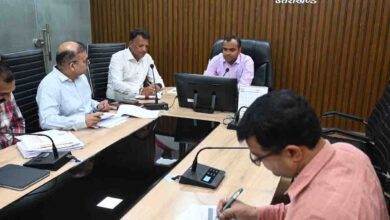Will AAP’s campaigning style to woo voters work in U’khand?

Tuesday, 01 February 2022 | Purnima Bisht | Dehradun
Though the Aam Aadmi Party (AAP) started working on forming a base for itself just about two years ago in Uttarakhand in view of the Assembly elections, the party has caught the attention of many with its strategies of targeting the voters from different sections of society which were hardly addressed separately by other prominent political parties before. Both Congress and Bharatiya Janata Party are comparatively stronger in the state but they may face the effects of AAP’s campaigning style in the polls. AAP has chosen to adopt social media platforms and other technical approaches to expand its reach to the maximum voters across the state rather than only relying on traditional methods of the electoral campaign.
The AAP workers have been collecting data of locals in various constituencies by distributing its guarantee cards of various promises made by AAP national convener Arvind Kejriwal like electricity scheme card for 300-unit free electricity, free pilgrimage scheme card for senior citizens, employment guarantee scheme card for the youth and the announcement of providing Rs 1,000 to all women aged above 18 years every month if the party wins elections.
Besides retired army personnel and unemployed youths, the party has also been targeting various sections like first-time voters, auto-rickshaw and taxi drivers, bus operators and local businessmen among others. Senior party leaders like Kejriwal and Delhi’s deputy CM Manish Sisodia have also interacted with auto-rickshaw and taxi drivers, and local businessmen in dialogues organised by the party in Kumaon and Garhwal divisions during their visits last year.
Since both sections have not been specifically addressed by the other parties in the state, many were impressed by AAP. Its chief ministerial candidate colonel (retd) Ajay Kothiyal also conducted a virtual campaign to specifically address various sections like families of statehood activists, government and outsourced employees, rural women, public transport operators and ex-army personnel. Senior AAP leaders have said repeatedly that sections like women and local public transport operators which are mostly ignored by other political parties have played a huge role in AAP’s victory in Delhi and the party wants their support here too.
The state in-charge Dinesh Mohaniya told The Pioneer that it was the party’s conscious decision to target those sections towards which political parties mostly remain indifferent. He said that the party also has plans to work for the welfare of senior citizens, disabled people, transgenders and people of the Kinnar (eunuch) community. He said that AAP believes in the politics of work and it will emerge stronger after the assembly elections next month. “We have won in Delhi and people have witnessed what we can do. The party aims to redevelop the state too with the support of the people here,” stated Mohaniya. However, some experts opined that there is a chance that AAP might win a few seats but it cannot stand against BJP and Congress with its same ‘winning formula’ of working in the state on the basis of Delhi’s model of governance. According to senior journalist Yogesh Bhatt, Uttarakhand and Delhi are quite different in terms of society, geography and demography but most of AAP’s election campaigning is still based on their experiences in Delhi. He said that Delhi is a cosmopolitan area whereas Uttarakhand is diversified and scattered where wooing voters is not an easy task. He said that the state has several areas in mountainous regions where the digital campaigning of AAP will not work effectively. Also, the party had mostly targeted slums, sanitation workers and people belonging to scheduled caste as its potential voters during Delhi elections but this structure is not that simple here. According to Bhatt, BJP and Congress generally get about 65 per cent of votes while the remaining are mostly received by parties like Bahujan Samaj Party (BSP) and regional parties like Uttarakhand Kranti Dal (UKD) and independent candidates. “The leadership of BSP and UKD have weakened in the past years here. Even if AAP gets 10 per cent of votes due to its notable presence in comparison to these parties, it will be a big achievement for it here but the chances of it are quite less,” added Bhatt.






